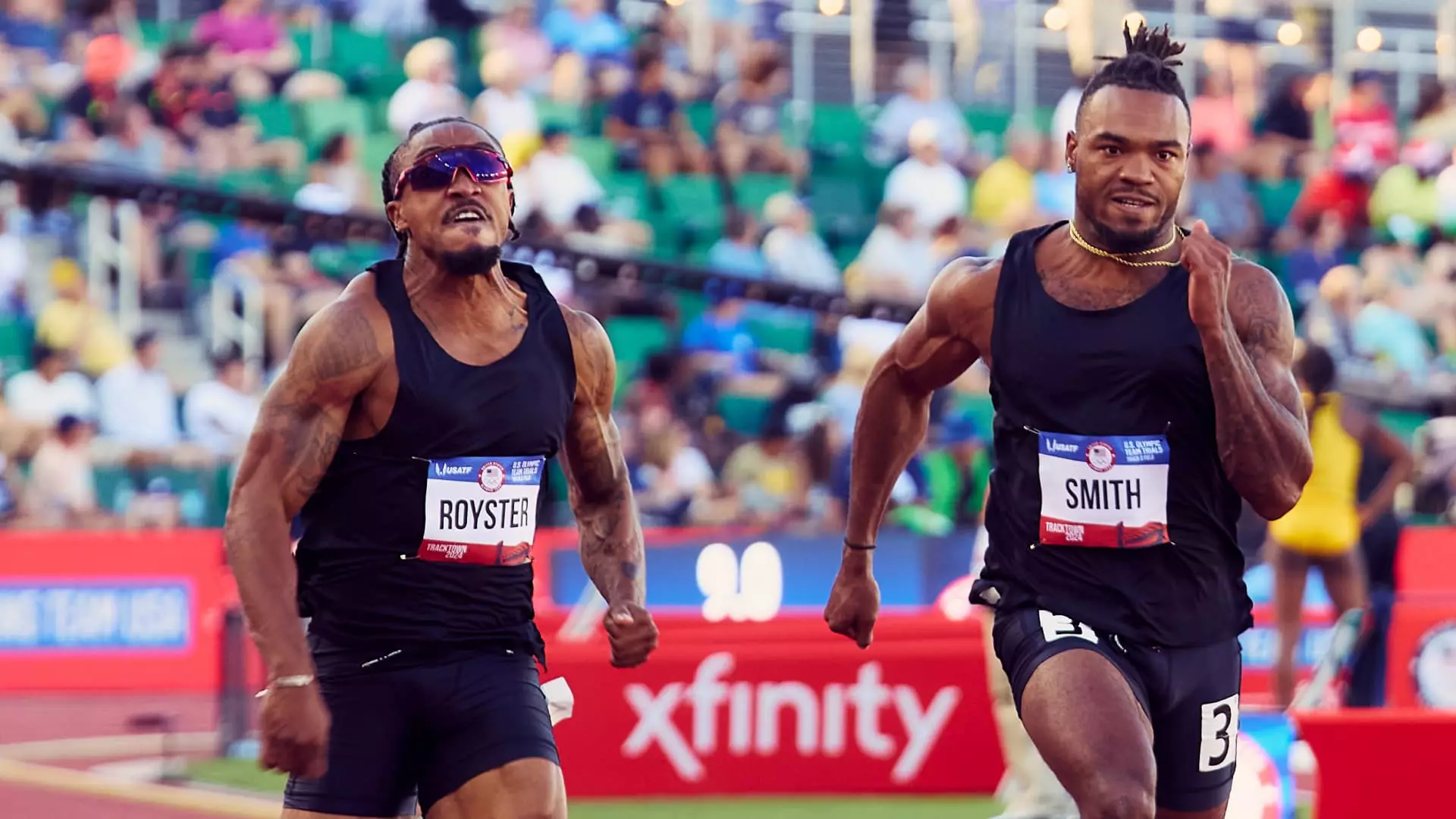In a sea of branded apparel at the U.S. Track & Field Olympic Trials, a group of 35 unsponsored athletes stand out in their all-black, logo-less gear. This unconventional choice is part of Bandit Running’s Unsponsored Project, aiming to challenge the traditional sponsorship model for professional athletes and to support up-and-coming competitors. In the world of track and field, athletes without sponsorships often end up purchasing apparel from major brands to wear during competitions, effectively providing free advertising for these companies. Bandit Running offers these Olympic hopefuls the opportunity to wear their all-black kits and warmups, along with short-term endorsement deals to cover expenses and provide a platform for exposure.
The founder of Bandit Running, Tim West, advocates for a more inclusive sponsorship model that focuses on supporting amateur and sub-elite athletes to help grow the sport from the grassroots level. By providing unsponsored athletes with unbranded apparel, a platform, and financial assistance, Bandit Running is creating a space for athletes to invest in themselves and pursue their Olympic dreams without the constraints of traditional sponsorships. The built-in release clause in Bandit’s deals allows athletes to transition seamlessly to traditional sponsorships if the opportunity arises, ensuring flexibility and growth for the competitors.
Athletes like Courtney Okolo, a 400-meter runner and former Nike-sponsored athlete, have embraced Bandit Running’s Unsponsored Project as a source of support and empowerment. Okolo highlights the financial challenges associated with competing, from training costs to travel expenses for competitions. For many unsponsored athletes like Brandee Johnson, balancing multiple jobs while training intensively for the trials is a harsh reality. Joining the Unsponsored Project provides these athletes with a sense of security and enables them to focus on their athletic goals without the burden of financial strain.
The stories of athletes like Okolo and Johnson shed light on the struggles faced by unsponsored athletes in the world of track and field. The Unsponsored Project by Bandit Running represents a shift towards a more equitable and supportive sponsorship model, empowering athletes to pursue their dreams without the traditional barriers of financial constraints. By providing athletes with the resources and visibility they need to succeed, Bandit Running is revolutionizing the way we support and uplift athletes in their journey to the Olympic stage.
As the landscape of sports sponsorship continues to evolve, initiatives like the Unsponsored Project are paving the way for a more inclusive and accessible future for athletes of all backgrounds. Through a blend of innovation, empowerment, and community support, unsponsored athletes are carving out their space in track and field, one stride at a time.

